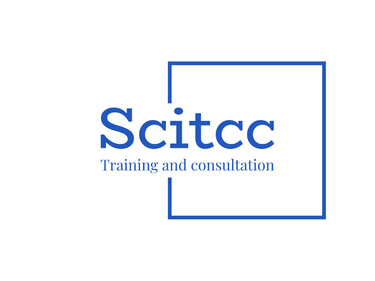
Effective Management of IT Projects
$5200.00
Effective Management of IT Projects - 5-Day Professional Training Course
Delivering Successful IT Initiatives Across Saudi Arabia, Oman, and the GCC
As Gulf Cooperation Council (GCC) nations accelerate their digital transformation agendas, the demand for skilled IT project managers has reached critical levels. This specialized 5-day IT Project Management training course equips technology leaders, project managers, and IT professionals in Saudi Arabia (KSA), Oman, UAE, Kuwait, Bahrain, and Qatar with advanced methodologies to deliver complex technology projects that drive business value and support national digital visions.
With Saudi Arabia’s Digital Transformation Program, National Technology Development Program (NTDP), Oman Digital Society initiative, and comprehensive digitalization across the GCC, organizations need IT project managers who can navigate technical complexity, manage diverse stakeholders, and deliver innovative solutions on time and within budget in the unique Middle Eastern technology landscape.
Course Overview: IT Project Management Mastery
This intensive program combines traditional project management, agile/DevOps methodologies, IT-specific frameworks (ITIL, PRINCE2), technology governance, and digital innovation to develop comprehensive IT project management capabilities. Through hands-on labs, real-world GCC case studies, and simulation exercises, participants will master the complete IT project lifecycle from business analysis through deployment and support.
Target Audience: IT project managers, software development managers, infrastructure project leads, systems analysts, solution architects, application managers, digital transformation officers, CIOs, and technology consultants across all sectors in Saudi Arabia, Oman, and GCC countries.
Training Locations: Riyadh, Jeddah, Dammam, Khobar, Jubail, Muscat, Salalah, Dubai, Abu Dhabi, Sharjah, Doha, Manama, and Kuwait City. Virtual delivery with hands-on labs available.
Day 1: IT Project Management Foundations and Initiation
Morning Session: IT Project Management Framework
IT Projects Unique Characteristics: Complexity, rapid technology change, integration challenges, and user adoption in GCC organizations
IT Project Life Cycles: Waterfall, iterative, agile, DevOps, and hybrid approaches for different project types
IT Governance Frameworks: COBIT, ISO/IEC 38500, and governance structures in Saudi, Omani, and Gulf enterprises
IT Project Portfolio Management: Aligning technology investments with business strategy and Vision 2030/2040 objectives
IT Service Management Integration: Connecting ITIL service lifecycle with project delivery
Regulatory Compliance: SDAIA Cloud Computing Framework, NCA Cybersecurity Controls, Oman Data Protection Law, and GCC regulations
IT Project Manager Competencies: Technical depth, business acumen, and leadership skills for Middle Eastern technology environments
Afternoon Session: IT Project Initiation and Requirements
Business Case Development: ROI, TCO (Total Cost of Ownership), payback period, and strategic value for technology investments
Stakeholder Analysis: Mapping business users, IT teams, vendors, executives, and regulators in GCC contexts
Requirements Engineering: Elicitation techniques for gathering accurate business and technical requirements
Requirements Documentation: User stories, use cases, functional specifications, and non-functional requirements
Technology Assessment: Evaluating platforms, cloud services (AWS, Azure, Google Cloud, STC Cloud), and solution architectures
Feasibility Analysis: Technical, operational, economic feasibility for Saudi, Omani, and Gulf IT environments
IT Project Charter: Defining scope, objectives, deliverables, constraints, and success criteria
Workshop Activity: Participants develop comprehensive IT project charters including business cases, stakeholder registers, and high-level requirements for real organizational technology initiatives.
Case Study: Analyzing successful IT project initiations from Saudi government entities (Absher, Etimad), Oman e-Government portal, and regional digital transformation programs.
Day 2: Agile, Scrum, and Modern IT Delivery Methods
Morning Session: Agile Fundamentals for IT Projects
Agile Manifesto and Principles: Values driving modern software development in GCC technology teams
Scrum Framework: Roles (Product Owner, Scrum Master, Development Team), ceremonies, and artifacts
Sprint Planning: Defining sprint goals, selecting backlog items, and capacity planning
Daily Standups: Facilitating effective synchronization in Saudi, Omani, and distributed GCC teams
Sprint Reviews and Retrospectives: Demonstrating increments and continuous improvement
Product Backlog Management: Prioritization techniques (MoSCoW, WSJF, value vs. effort)
User Story Writing: Crafting effective stories with acceptance criteria and definition of done
Afternoon Session: DevOps, CI/CD, and Modern Practices
DevOps Culture: Breaking silos between development and operations in Middle Eastern IT organizations
Continuous Integration/Continuous Deployment: Automating build, test, and deployment pipelines
Infrastructure as Code: Managing cloud infrastructure programmatically (Terraform, CloudFormation)
Containerization: Docker and Kubernetes for scalable application deployment
Version Control: Git workflows, branching strategies, and collaboration practices
Automated Testing: Unit, integration, and end-to-end testing in agile environments
Release Management: Coordinating deployments, rollbacks, and production support in GCC data centers and cloud regions
Hands-On Lab: Participants work through agile simulation, creating product backlogs, conducting sprint planning, and experiencing Scrum ceremonies with technology project scenarios.
DevOps Demonstration: Exploring CI/CD pipelines, automated testing, and deployment automation tools used in Saudi Arabia, Oman, and GCC enterprises.
Day 3: IT Project Planning, Architecture, and Vendor Management
Morning Session: IT Solution Design and Architecture
Solution Architecture Development: Designing technical solutions aligned with business requirements
Cloud Architecture Patterns: Microservices, serverless, hybrid cloud, and multi-cloud strategies for GCC
Enterprise Architecture Frameworks: TOGAF principles for aligning IT projects with organizational architecture
Security Architecture: Implementing security-by-design, encryption, identity management, and zero-trust principles
Integration Planning: APIs, middleware, ESB, and data integration strategies for complex Saudi and Omani IT landscapes
Scalability and Performance: Designing for growth, load balancing, and high availability
Technical Debt Management: Balancing speed-to-market with long-term maintainability
Afternoon Session: IT Vendor and Contract Management
Vendor Selection: RFP processes, technical evaluation criteria, and vendor assessment for GCC IT markets
Contract Types: Fixed-price, time-and-materials, managed services, and SaaS agreements
Software Licensing: Understanding licensing models (perpetual, subscription, user-based, consumption-based)
SLA Management: Defining and monitoring service level agreements with providers
Offshore/Nearshore Management: Working with development teams in India, Egypt, Jordan, and global locations
Cloud Service Agreements: AWS, Azure, Google Cloud contracts and cost optimization
Intellectual Property: Protecting code ownership and handling open-source licensing
Architecture Workshop: Teams design high-level solution architectures for complex IT projects including cloud services, databases, integration layers, and security components.
Contract Analysis: Reviewing real IT vendor agreements from Saudi Arabia, Oman, and GCC technology projects.
Day 4: IT Risk, Quality, and Change Management
Morning Session: IT Project Risk Management
Technology Risk Identification: Security vulnerabilities, technical complexity, integration failures, resource constraints
Cybersecurity Risk Management: Threat modeling, vulnerability assessment aligned with NCA framework and NCSI standards
Data Privacy Risks: GDPR compliance, Saudi Personal Data Protection Law, Oman Data Protection Law requirements
Vendor and Third-Party Risks: Assessing supplier security, reliability, and business continuity
Cloud Migration Risks: Data sovereignty, vendor lock-in, performance, and compliance challenges in GCC
Risk Response Strategies: Technical mitigation, architectural redundancy, security controls, and contingency planning
Business Continuity: Disaster recovery, backup strategies, and resilience planning for critical IT systems
Afternoon Session: IT Quality Assurance and Testing
Quality Planning: Defining quality standards, metrics, and acceptance criteria for IT deliverables
Testing Strategy Development: Test levels (unit, integration, system, UAT), types, and coverage requirements
Test Case Design: Creating comprehensive test scenarios for Saudi, Omani, and GCC user requirements
Test Automation: Selenium, JUnit, automated API testing, and regression test suites
Performance Testing: Load testing, stress testing, and capacity planning for GCC user volumes
Security Testing: Penetration testing, vulnerability scanning, and security code review
User Acceptance Testing: Coordinating UAT with business stakeholders in Middle Eastern organizations
Risk Workshop: Participants develop comprehensive IT risk registers with technical and business risks, qualitative analysis, and response strategies for their projects.
Testing Lab: Creating test plans, writing test cases, and exploring test automation tools used in GCC IT projects.
Day 5: IT Project Execution, Change Management, and Closure
Morning Session: Execution, Monitoring, and Control
Development Oversight: Managing coding standards, code reviews, and technical quality
Configuration Management: Version control, environment management (dev, test, staging, production)
Integration Management: Coordinating multiple workstreams, APIs, data migrations, and system integrations
Performance Monitoring: Tracking velocity, burn rates, defect density, and technical metrics
Issue and Bug Management: Triaging, prioritizing, and resolving defects using JIRA, Azure DevOps
Scope Management: Handling change requests, feature creep, and maintaining focus
Communication: Status reporting for technical and non-technical stakeholders in GCC organizations
Afternoon Session: Change Management and IT Project Closure
Organizational Change Management: Preparing Saudi, Omani, and Gulf organizations for new technology adoption
User Training and Adoption: Designing effective training programs for diverse GCC user populations
Communication Strategies: Building awareness, addressing concerns, and managing resistance in Middle Eastern workplaces
Data Migration: Planning and executing data conversion, cleansing, and validation
Go-Live Planning: Deployment strategies, rollback procedures, hypercare support
Transition to Operations: Handover to IT support teams, documentation, knowledge transfer
Post-Implementation Review: Measuring business value realization and benefits achievement
Final Integration Session: IT Project Simulation and Best Practices
IT Project Simulation: Managing a realistic technology project through planning, agile sprints, technical challenges, and deployment
Crisis Management: Handling production incidents, security breaches, and major defects
Lessons Learned: Capturing knowledge for organizational IT project management improvement
IT PMO Best Practices: Establishing standards, templates, and governance for Saudi and GCC technology portfolios
Emerging Trends: AI/ML projects, blockchain implementations, IoT initiatives, quantum computing preparation
Career Development: Advancing as IT project leader in Middle Eastern technology markets
Capstone Project: Teams present comprehensive IT project plans including architecture diagrams, agile backlogs, risk registers, testing strategies, and deployment plans.
Certification Ceremony: Recognizing mastery of IT project management with PDUs toward PMP/PMI-ACP certification.
Key Learning Outcomes
Upon completing this Effective Management of IT Projects training in Saudi Arabia, Oman, and the GCC, participants will be able to:
✓ Plan and execute IT projects using waterfall, agile, and hybrid methodologies
✓ Design solution architectures aligned with business requirements and technical constraints
✓ Manage agile teams effectively using Scrum, Kanban, and DevOps practices
✓ Assess and mitigate IT risks including security, technical, and vendor risks
✓ Oversee software development with quality assurance and testing excellence
✓ Navigate cloud computing projects in AWS, Azure, and regional providers
✓ **Lea


